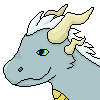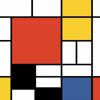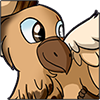![[User Posted Image]](https://64.media.tumblr.com/25d3ed0df020282ef194c311c8a28751/bdfc324e65f92e0a-52/s640x960/fff3c3fb7989b7b76c1f2bff84daaa1098f5fc58.jpg)
darkSpyro - Spyro and Skylanders Forum > Stuff and Nonsense > Random Thought Topic
ThunderEgg
Emerald Sparx
 Gems: 4535
Gems: 4535
|
#21101 Posted: 21:10:20 06/09/2020
wantttttt
![[User Posted Image]](https://64.media.tumblr.com/25d3ed0df020282ef194c311c8a28751/bdfc324e65f92e0a-52/s640x960/fff3c3fb7989b7b76c1f2bff84daaa1098f5fc58.jpg)
---
I AM ETERNAL! https://i.imgur.com/8H3ij0j.png (banner by skylandersfan60) |
fyra
Platinum Sparx
 Gems: 6471
Gems: 6471
|
#21102 Posted: 13:45:12 07/09/2020
With how vast the concept of Megaten(Megami Tensei) is, I’m shocked no one is thinking of a non game based, not Persona related anime based on the franchise, I would gladly watch that.
---
Life may be harsh in such a dark year, happy new year we said an eternity ago it seem now, but it's far from over, we will survive. |
somePerson
Diamond Sparx
 Gems: 9708
Gems: 9708
|
#21103 Posted: 18:09:46 07/09/2020
My friend got world record on bean counter |
StormDragon21
Platinum Sparx
 Gems: 5794
Gems: 5794
|
#21104 Posted: 00:36:21 08/09/2020
Quote: somePerson
I couldn’t even make it past the third round.
---
"sTORM, my parents just told me something that RUINED MY LIFE. DID YOU KNOW that Smarties have different flavors?!" ~ShadowMewX |
ThunderEgg
Emerald Sparx
 Gems: 4535
Gems: 4535
|
#21105 Posted: 00:37:13 08/09/2020
perfect employee
---
I AM ETERNAL! https://i.imgur.com/8H3ij0j.png (banner by skylandersfan60) |
somePerson
Diamond Sparx
 Gems: 9708
Gems: 9708
|
#21106 Posted: 03:25:59 08/09/2020
paying 5 bucks for shipping and having to wait like 11 days is a rip off
|
somePerson
Diamond Sparx
 Gems: 9708
Gems: 9708
|
#21107 Posted: 16:53:19 08/09/2020
Quote: Drednaw
I love how beatles songs are either about girls being pretty or doing hardcore drugs |
Carmelita Fox
Prismatic Sparx
 Gems: 13254
Gems: 13254
|
#21108 Posted: 17:05:34 08/09/2020
coders = weeaboos
hardware enthusiasts = furries |
| willspyro Ripto Gems: 5862 |
#21109 Posted: 18:45:33 08/09/2020
I'm a c pop stan I'll have you know
|
emeraldzoroark
Platinum Sparx
 Gems: 5597
Gems: 5597
|
#21110 Posted: 19:27:45 08/09/2020
---
Soon. |
| willspyro Ripto Gems: 5862 |
#21111 Posted: 19:37:09 08/09/2020
|
| willspyro Ripto Gems: 5862 |
#21112 Posted: 21:49:09 08/09/2020
Yeah I mean like especially the part with the 14th letter in the alphabet
|
| willspyro Ripto Gems: 5862 |
#21113 Posted: 22:12:13 08/09/2020
Glad we collectively agree
|
ThunderEgg
Emerald Sparx
 Gems: 4535
Gems: 4535
|
#21114 Posted: 01:07:09 10/09/2020
thinking about he
![[User Posted Image]](https://vignette.wikia.nocookie.net/dchallofjustice/images/d/d8/Losh-timberwolf.jpg/revision/latest/scale-to-width-down/340?cb=20121023004220)
---
I AM ETERNAL! https://i.imgur.com/8H3ij0j.png (banner by skylandersfan60) |
|
sans
Emerald Sparx
|
#21115 Posted: 18:43:59 12/09/2020
gender reveal bad tender reveal yum
bk logo appears
---
hey what's up i'm sans and i'm trans. winner of the ultimate tumblr sexyman contest. |
somePerson
Diamond Sparx
 Gems: 9708
Gems: 9708
|
#21116 Posted: 18:56:35 12/09/2020
Mobile reddit is a good design. Why do they keep forcing me off of it :(
|
DragonCamo
Platinum Sparx
 Gems: 6710
Gems: 6710
|
#21117 Posted: 19:44:10 12/09/2020
Mr. Chris Evans
  
---
Gay 4 GARcher |
Metallo
Platinum Sparx
 Gems: 6419
Gems: 6419
|
#21118 Posted: 20:48:59 12/09/2020
Quote: DragonCamo
At first I thought these were crying emojis and I was about to be very scared |
Metallo
Platinum Sparx
 Gems: 6419
Gems: 6419
|
#21119 Posted: 01:58:11 13/09/2020
The half of marriages ending in divorce thing is technically correct, but misleading.
It's the rate of divorces themselves, not people who get divorced. In other words, a divorcee is likely to remarry and get divorced again. I think the percentage of first marriages that end in divorce is somewhere in the 30s. |
redwes
Diamond Sparx
 Gems: 9614
Gems: 9614
|
#21120 Posted: 02:09:20 13/09/2020
The new Facebook favicon is an eyesore next to everything else on my bookmarks bar.
|
|
sans
Emerald Sparx
|
#21121 Posted: 03:13:49 13/09/2020
yawn.
---
hey what's up i'm sans and i'm trans. winner of the ultimate tumblr sexyman contest. |
Metallo
Platinum Sparx
 Gems: 6419
Gems: 6419
|
#21122 Posted: 20:01:48 13/09/2020
|
ThunderEgg
Emerald Sparx
 Gems: 4535
Gems: 4535
|
#21123 Posted: 20:17:25 13/09/2020
was looking for reference photos and i found one that gave me a chuckle
![[User Posted Image]](https://c8.alamy.com/comp/B93583/a-man-looking-out-of-a-tent-B93583.jpg)
---
I AM ETERNAL! https://i.imgur.com/8H3ij0j.png (banner by skylandersfan60) |
somePerson
Diamond Sparx
 Gems: 9708
Gems: 9708
|
#21124 Posted: 21:18:17 13/09/2020
Quote: Drednaw
that's when u start making smut films |
redwes
Diamond Sparx
 Gems: 9614
Gems: 9614
|
#21125 Posted: 21:26:45 13/09/2020
Anyone else have high scores in the 'no internet dino mini-game'? Thanks crappy internet service and your connection and constantly briefly cuts out for minutes at time!

|
Metallo
Platinum Sparx
 Gems: 6419
Gems: 6419
|
#21126 Posted: 00:17:29 14/09/2020
Quote: somePerson
I'm calling the FBI. |
Seiki
Platinum Sparx
 Gems: 6160
Gems: 6160
|
#21127 Posted: 18:51:19 14/09/2020
I made it to Platinum Sparx? How the **** did that happen?
---
Once in my dreams, I rose and soared. No matter how I'm knocked around or beaten down, I will stand up restored. |
somePerson
Diamond Sparx
 Gems: 9708
Gems: 9708
|
#21128 Posted: 19:17:48 14/09/2020
the travis scott burger at mcdonalds is probably one of their best ideas of the past 10 years. being able to sell a pretty cheap burger that doesn't require any special ingredient for a hefty price is doing wonders. all the hype surrounding the burger is in the name and not the actual burger which means it's doing its job correctly
|
emeraldzoroark
Platinum Sparx
 Gems: 5597
Gems: 5597
|
#21129 Posted: 22:13:27 14/09/2020
Quote: Sesshomaru75
its a great game and all but the main reason i haven’t gone back to it much is because i like 100%ing my games and that one is... oof
---
Soon. |
Please login or register a forum account to post a message.

 (Really digging how OP Link is with the Master Sword, and how tanky Ganondorf is lmao)
(Really digging how OP Link is with the Master Sword, and how tanky Ganondorf is lmao) darkspyro
darkspyro net
net